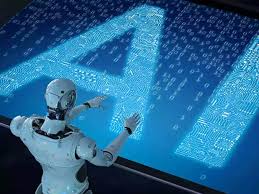74% of US professionals expect AI to replace their jobs in the next 3 years, survey finds. Here’s what to do to keep yourself relevant in the job market

Artificial Intelligence (AI) has rapidly transformed from a futuristic concept into a powerful force reshaping industries across the globe. According to a recent survey, a striking 74% of professionals in the United States believe their jobs could be replaced or drastically changed by AI within the next three years. This statistic has understandably sparked widespread concern and uncertainty among workers, but it also serves as a wake-up call for individuals and organizations alike to adapt proactively.
Why Are So Many Professionals Worried?
The fear of job displacement is not unfounded. AI technologies such as machine learning, natural language processing, and automation are increasingly capable of performing tasks that once required human judgment and effort. From customer service chatbots to automated financial analysis, AI is penetrating roles previously thought to be secure.
Moreover, AI doesn’t just threaten routine or manual jobs anymore. Even highly skilled professions—including law, marketing, journalism, and healthcare—are seeing AI-powered tools capable of completing complex tasks faster and often with fewer errors than humans.
This looming shift has left many professionals asking: What can I do to protect my career and remain valuable in the age of AI?
Embracing Lifelong Learning and Skill Upgradation
One of the most effective ways to safeguard your professional future is to commit to continuous learning. The pace of technological change means that skills you acquire today may become obsolete within a few years. Therefore, staying updated with emerging tools and trends is essential.
For example, gaining a working knowledge of AI-related technologies—even if your job is not directly related to AI—can give you a competitive edge. Courses in data literacy, programming basics, AI applications, and digital tools are widely available online, often for free or at low cost through platforms like Coursera, Udemy, or LinkedIn Learning.
Additionally, industries evolve, and new roles emerge that didn’t exist before. By learning new competencies, you position yourself to transition into these roles or enhance your current job with AI capabilities.
Cultivate Human-Centric Skills AI Can’t Replace
While AI excels at data processing and repetitive tasks, it still struggles with inherently human traits. Creativity, empathy, leadership, critical thinking, and complex problem-solving remain areas where humans shine.
Focusing on developing these soft skills can make you indispensable. For example, jobs that require emotional intelligence—such as counseling, negotiation, or customer relationship management—are less vulnerable to automation.
Furthermore, innovation and creative ideation rely on human intuition and unique perspectives. If you invest in skills like creative writing, design thinking, or strategic planning, you create a strong buffer against AI displacement.
Adaptability and Openness to Change
The nature of work is changing, and so is the demand for different types of jobs. Being adaptable means you’re ready to learn new skills, switch roles, or even change industries if necessary.
Instead of resisting technological changes, embracing them can open new doors. For example, professionals who understand how to leverage AI tools to boost productivity will be more valuable than those who view AI as a threat.
Cultivating a growth mindset—where challenges are seen as opportunities to learn rather than obstacles—helps you navigate transitions more smoothly.
Partnering With AI, Not Competing Against It
Rather than seeing AI as a rival, consider it a powerful tool to augment your work. AI can handle mundane and time-consuming tasks, freeing you to focus on higher-value responsibilities.
For instance, marketers can use AI analytics to better understand consumer behavior, while doctors can utilize AI diagnostics as a support tool to make more accurate decisions.
By mastering AI tools specific to your profession, you can enhance your efficiency, make smarter decisions, and deliver more value. This collaborative approach positions you as a forward-thinking professional ready for the future.
Networking and Building Relationships
Even in a highly automated world, human connections remain invaluable. Networking opens doors to new opportunities, mentorship, and insights into emerging trends.
Building and maintaining professional relationships can also help you discover job openings before they are widely advertised, gain referrals, and receive support during career transitions.
Participating in industry events, joining professional associations, and maintaining an active presence on platforms like LinkedIn can strengthen your network.
Focus on Strategic and Leadership Roles
Certain job functions are inherently more resistant to automation. Roles that involve strategic thinking, decision-making, team leadership, and interpersonal management require a level of nuance that AI cannot easily replicate.
If you can develop competencies in leadership, project management, or organizational strategy, you place yourself in a position that demands uniquely human skills.
Taking on responsibilities such as mentoring colleagues, managing teams, or spearheading innovation projects increases your visibility and importance within an organization.
How Employers Can Support Their Workforce
While employees must take responsibility for their own adaptability, companies also play a crucial role. Forward-thinking organizations invest in reskilling and upskilling their workforce, helping employees transition to new roles augmented by AI.
Providing training programs, encouraging a culture of innovation, and fostering open communication about AI’s impact can ease the anxiety around job security.
Final Thoughts: Be Proactive, Not Reactive
The rise of AI is inevitable, but it does not have to be a threat. By proactively upgrading your skills, embracing technology, and focusing on uniquely human capabilities, you can stay relevant and thrive in an AI-enhanced workplace.
Remember, history shows that technological advancements often create new types of jobs even as they replace old ones. Your ability to learn, adapt, and collaborate with AI will determine how you fare in the future job market.






